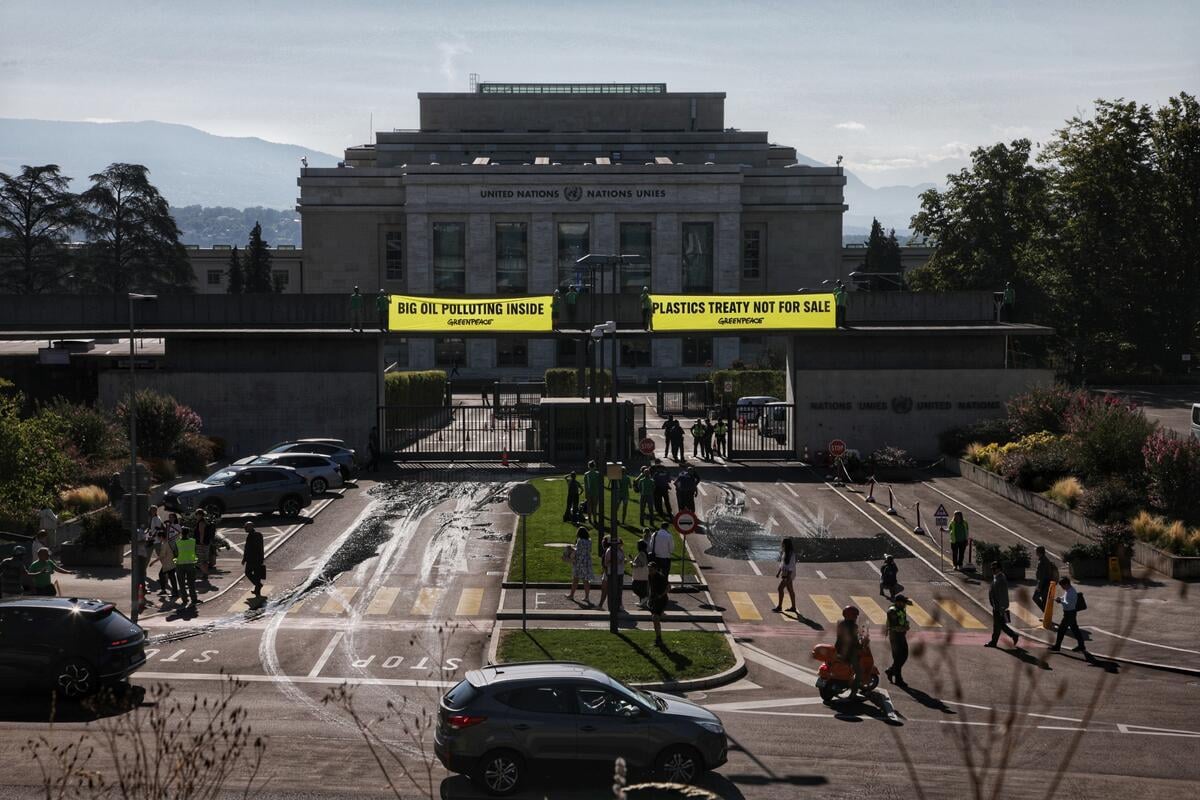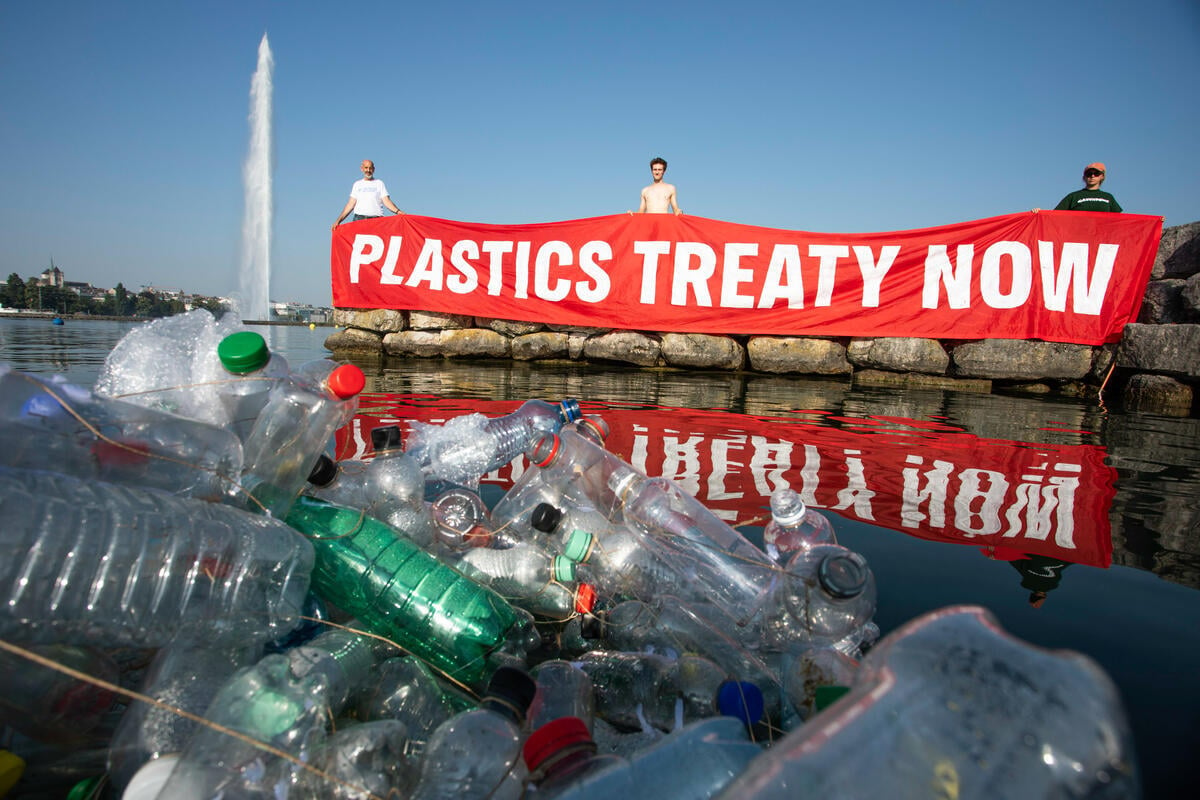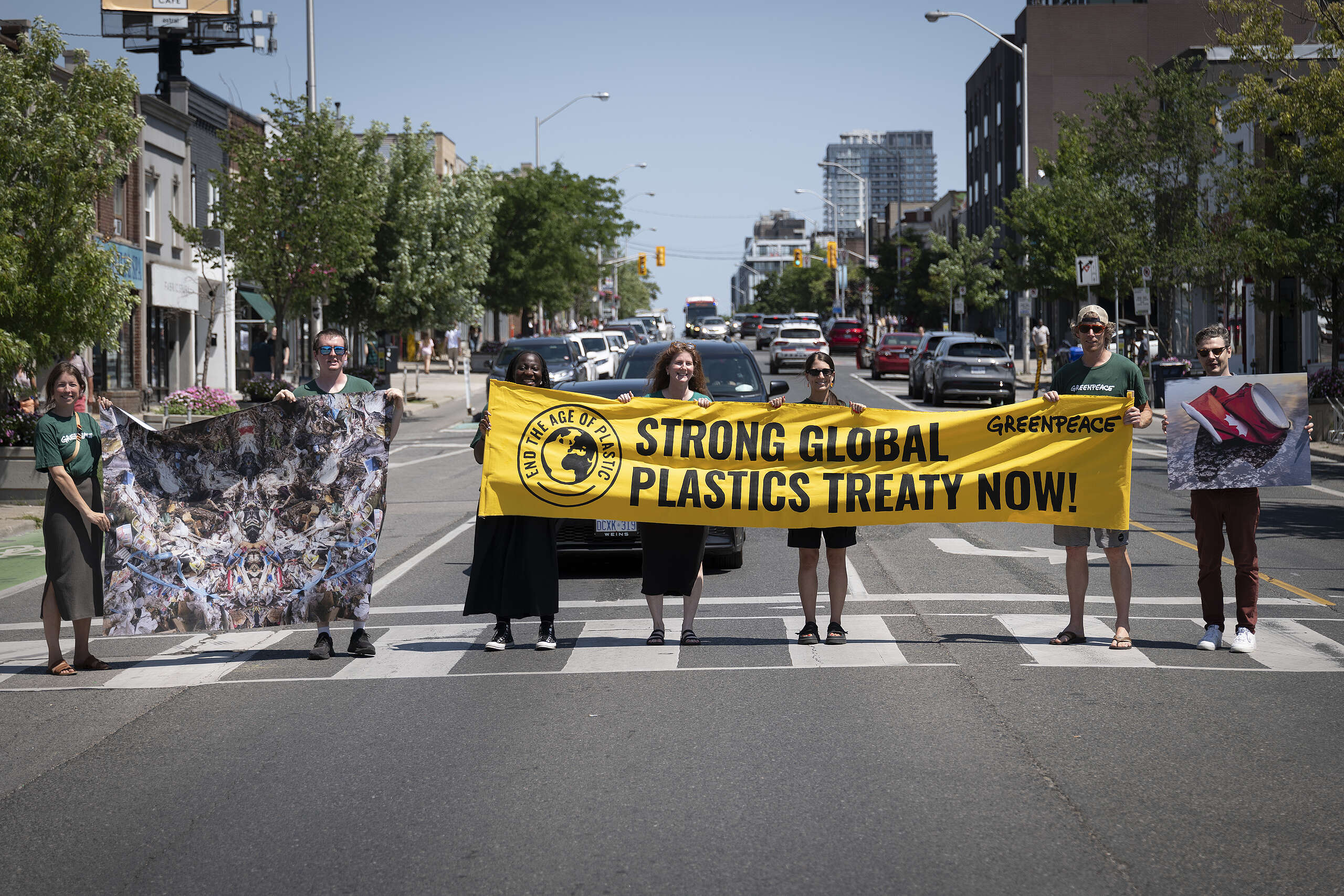What do you do when you face a setback?
Last month, we hit a frustrating snag in the fight against plastic pollution.
But much like plastic itself, Greenpeace is stubbornly persistent — and we’re not going anywhere.
For years, alongside thousands of other organizations, experts, and Indigenous leaders, Greenpeace has pushed world leaders to take real action on the plastics crisis. That pressure finally began to pay off in 2019 when the United Nations started negotiating a Global Plastics Treaty — a legally binding agreement to tackle the problem at its root.
But progress has been slow. At every stage, talks have been delayed or watered down — largely due to interference from oil lobbyists and petro-states protecting profits over people. The most recent round of negotiations — held this August in Geneva — was supposed to be the final one. Instead, governments left without an agreement. Again.
Greenpeace was there on the ground to call out the fact that there were more fossil fuel lobbyists in the meeting than all the delegates from the European Union combined. We unfurled a massive “Plastics Treaty Now” banner and created a symbolic trail of black oil where the negotiations were held.

To make sure Canadians voices were heard during the negotiations, Greenpeace Canada launched a photo exhibit on Toronto’s Danforth Avenue. The exhibit spotlighted both the scale of the plastic crisis and the urgent leadership needed from Canada’s Environment Minister, Julie Dabrusin — and to really drive the point home, we displayed the exhibit in her riding.

Meanwhile, Greenpeace activists in Scotland abseiled from the Forth Road Bridge, suspending themselves 25 metres above the River Forth to block a tanker delivering fracked gas to a plastics plant. The company importing the gas is the UK’s largest plastics producer, churning out up to 35 billion nurdles (plastic pellets) a day. No surprise: they oppose a Global Plastics treaty. But the activists — and the message — couldn’t be ignored.

While this round of negotiations didn’t end in a treaty, there’s still a path forward. That could include a more ambitious treaty signed by fewer countries, or integrating plastics regulation into existing legal frameworks.
While the outcome of the Global Plastics Treaty negotiations was disappointing, it’s not the end of the road. We’ll keep pushing, organizing, and refusing to settle for anything less than real change. That’s what Greenpeacers we do when we face a setback.
So while the INC-5.2 was disappointing, we won’t let it be the end of the conversation. If you’d like a deeper dive into what happened at the latest negotiations, you can read this blog from my colleague Sien.



